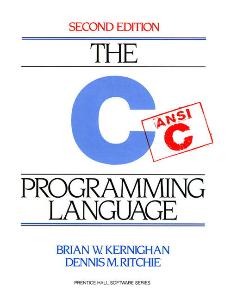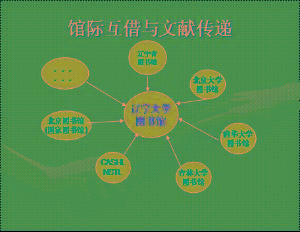网点理财英语怎么写
随着全球化的推进和互联网的普及,越来越多的人开始关注网点理财。无论是个人投资者还是企业,都希望通过理财来增加财富。然而,对于许多非英语母语的人来说,如何用英语表达网点理财相关的概念和操作,成为了一个挑战。本文将围绕“网点理财英语怎么写”这一主题,提出可能的问题,并围绕这些问题构建内容,帮助读者更好地理解和掌握网点理财的英语表达。
1. 什么是网点理财?
首先,我们需要明确什么是网点理财。网点理财是指通过银行或其他金融机构的实体网点进行的投资和理财活动。这些网点通常提供各种理财产品和服务,如储蓄账户、定期存款、基金、保险等。
可能的问题:
- 如何用英语描述网点理财的基本概念?
- 网点理财的主要产品和服务有哪些?
内容构建:
网点理财可以用英语表达为 “branch-based financial management” 或 “in-branch financial services”。在描述网点理财的基本概念时,可以使用以下表达:
- “Branch-based financial management refers to the investment and financial activities conducted through physical branches of banks or financial institutions.”
- “In-branch financial services include a variety of products and services such as savings accounts, fixed deposits, mutual funds, and insurance.”
网点理财的主要产品和服务包括:
- Savings Accounts: “Savings accounts are designed to help individuals save money with interest.”
- Fixed Deposits: “Fixed deposits offer higher interest rates compared to savings accounts, but the money is locked in for a fixed period.”
- Mutual Funds: “Mutual funds allow investors to pool their money together to invest in a diversified portfolio of stocks, bonds, and other assets.”
- Insurance: “Insurance products provide financial protection against various risks such as health, life, and property.”
2. 网点理财的优势和劣势
了解网点理财的优势和劣势对于投资者来说至关重要。这有助于他们在做出投资决策时权衡利弊。
可能的问题:
- 网点理财的主要优势是什么?
- 网点理财存在哪些劣势?
内容构建:
网点理财的主要优势包括:
- Personalized Service: “Branch-based financial management offers personalized service, allowing customers to consult with financial advisors face-to-face.”
- Security: “Customers can feel more secure when dealing with physical branches, as they can verify the authenticity of the institution.”
- Access to Expertise: “Branches often have financial experts who can provide advice and guidance on various investment options.”
然而,网点理财也存在一些劣势:
- Limited Accessibility: “Physical branches may not be accessible to everyone, especially in remote areas.”
- Higher Costs: “Operating physical branches can be expensive, which may result in higher fees for customers.”
- Limited Product Range: “Compared to online platforms, branch-based services may offer a more limited range of products and services.”
3. 如何选择合适的网点理财产品?
选择合适的网点理财产品是成功理财的关键。投资者需要考虑自己的财务目标、风险承受能力和投资期限等因素。
可能的问题:
- 选择网点理财产品时应考虑哪些因素?
- 如何评估不同理财产品的风险和收益?
内容构建:
在选择网点理财产品时,投资者应考虑以下因素:
- Financial Goals: “Determine your financial goals, whether it is for short-term savings, long-term investment, or retirement planning.”
- Risk Tolerance: “Assess your risk tolerance to choose products that match your comfort level with risk.”
- Investment Horizon: “Consider your investment horizon, which is the length of time you plan to invest.”
评估不同理财产品的风险和收益时,可以使用以下方法:
- Historical Performance: “Review the historical performance of the product to understand its past returns and volatility.”
- Risk Ratings: “Check the risk ratings provided by the financial institution to gauge the level of risk associated with the product.”
- Diversification: “Diversify your investments across different asset classes to reduce overall risk.”
4. 网点理财与在线理财的比较
随着科技的发展,在线理财逐渐成为一种流行的理财方式。了解网点理财与在线理财的差异有助于投资者选择最适合自己的理财方式。
可能的问题:
- 网点理财与在线理财的主要区别是什么?
- 如何根据个人需求选择合适的理财方式?
内容构建:
网点理财与在线理财的主要区别包括:
- Accessibility: “Branch-based services require physical visits, while online platforms can be accessed from anywhere with an internet connection.”
- Service Type: “Branches offer personalized service, whereas online platforms provide self-service options.”
- Product Range: “Online platforms often offer a wider range of products and services, including international investments.”
根据个人需求选择合适的理财方式时,可以考虑以下因素:
- Convenience: “If you prefer convenience and flexibility, online platforms may be the better choice.”
- Personal Interaction: “If you value face-to-face interaction and personalized advice, branch-based services may be more suitable.”
- Technical Skills: “Consider your technical skills and comfort level with using online platforms.”
5. 网点理财的未来发展趋势
随着金融科技的进步,网点理财也在不断演变。了解其未来发展趋势有助于投资者把握市场动态,做出更明智的投资决策。
可能的问题:
- 网点理财的未来发展趋势是什么?
- 金融科技如何影响网点理财?
内容构建:
网点理财的未来发展趋势可能包括:
- Hybrid Models: “Banks and financial institutions are likely to adopt hybrid models, combining physical branches with online services to provide a seamless experience.”
- Enhanced Technology: “The use of advanced technologies such as artificial intelligence and blockchain will enhance the efficiency and security of branch-based services.”
- Customer-Centric Approach: “Financial institutions will focus on providing more personalized and customer-centric services to meet the evolving needs of investors.”
金融科技对网点理财的影响主要体现在以下几个方面:
- Digital Transformation: “Financial institutions are undergoing digital transformation to improve customer experience and operational efficiency.”
- Innovative Products: “New financial products and services, such as robo-advisors and digital wallets, are being introduced to meet the changing demands of customers.”
- Data-Driven Insights: “The use of big data and analytics allows financial institutions to provide more accurate and personalized advice to customers.”
结论
网点理财作为一种传统的理财方式,在现代金融市场中仍然具有重要地位。通过了解网点理财的基本概念、优势和劣势、选择合适的产品、与在线理财的比较以及未来发展趋势,投资者可以更好地利用网点理财来实现自己的财务目标。无论选择哪种理财方式,关键在于根据个人需求和市场动态做出明智的决策。
希望本文能够帮助读者更好地理解和掌握网点理财的英语表达,并在实际操作中取得成功。





